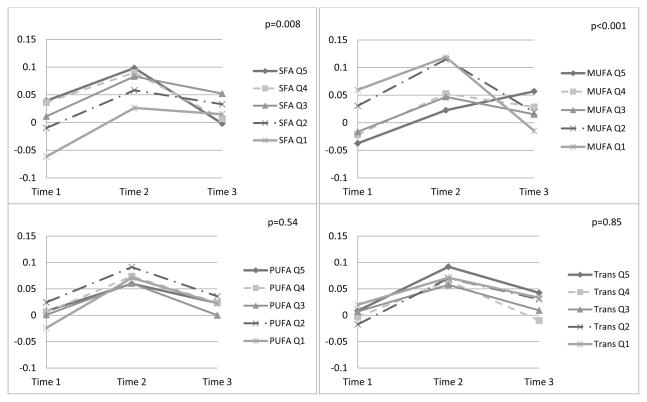Figure 1. Multivariable-adjusted Least-squares Means Global Cognitive* Scores over 4 years, by Quintiles of Fat Types (n=6,172)†.
* Global score combines results of the TICS (Telephone Interview for Cognitive Status), category fluency, immediate and delayed recall trials of East Boston Memory Test (EBMT), and delayed recall trial of the TICS 10-word list; verbal memory score combines results of the immediate and delayed recall trials of EBMT and the TICS 10-word list; mean (SD) span between the 1st and 3rd assessments was 4.0 (0.3) years. Adjusted least-squares means were obtained from the repeated measures analysis models involving N=6,172 participants.
† SFA = saturated fatty acid; MUFA = mono-unsaturated fatty acid; PUFA = poly-unsaturated fatty acid; Trans = trans fatty acid; Q1 = lowest quintile of intake; Q5 = highest quintile of intake; models adjusted for mean-centered age at initial cognitive assessment (continuous, in years), educational attainment (bachelor’s degree or above versus associate’s degree), race (white/non-white), annual household income (≥$50,000/less), randomized treatment assignment (aspirin, vitamin E), other fat intake, protein intake, total energy intake, body mass index (<25, 25.0–29.9, or ≥30 kg/m2), current cigarette smoking (yes/no), postmenopausal hormone use (ever/never), history of hypertension (yes/no), history of elevated cholesterol (yes/no), history of depression (yes/no), history of diabetes (yes/no), daily alcohol consumption (yes/no), exercise (≥1 times per week/less), and all covariate-by-time interactions. P-values are from the Wald tests of interactions between fat type consumption level (medians-per-quintile) and time. N.B.: N=11 women were missing data at initial cognitive testing on components tests required to compute the global score.

